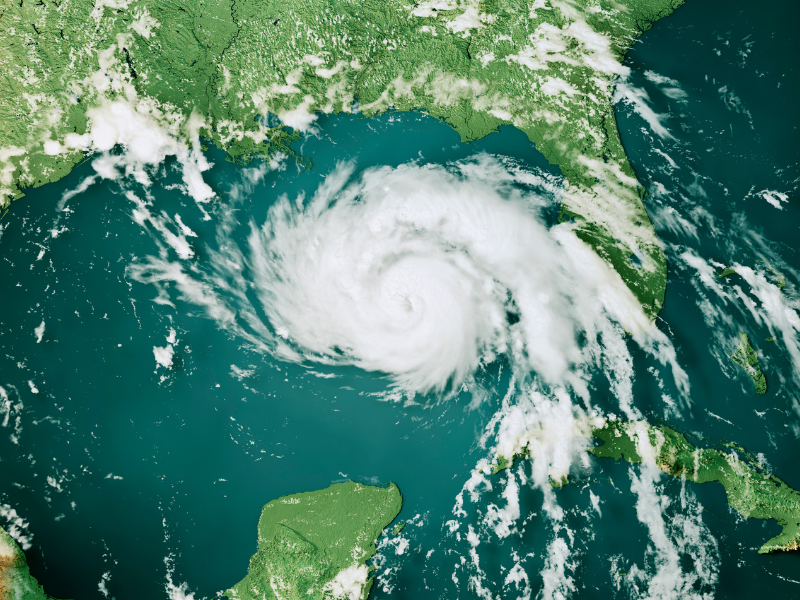Climate Change and Health: Addressing the Challenges
Climate change, a long-term shift in weather patterns and temperatures, is directly impacting global health. The effects include damage to homes, increased air pollution, water and food insecurity, and more frequent severe weather events like droughts, hurricanes, and wildfires. The Celia Scott Weatherhead School of Public Health and Tropical Medicine is amping its focus on the health impacts of climate, especially in New Orleans and the Gulf Coast, regions highly vulnerable to climate-related risks.
These regions already face health disparities and barriers to access, which are exacerbated by the effects of climate change. The Gulf Coast experiences higher rates of poverty and adverse health outcomes, with many unable to afford healthcare. According to Dr. Melissa Gonzales, chair of the Department of Environmental Health Sciences, climate change-related public health challenges will only intensify in the coming years. She points to more frequent flash floods and rising temperatures that strain public health resources, particularly in marginalized communities.
Since joining Tulane, Gonzales has spearheaded efforts to examine the connection between climate and health. She hired Dr. Mostafijur Rahman, an assistant professor specializing in using longitudinal data to understand the effects of environmental exposures on health. Rahman’s research in Bangladesh and California revealed the dangerous health outcomes associated with air pollution, extreme heat, and temperature variability, including respiratory and cardiovascular issues. (Learn more about Dr. Rahman’s research here.)
Rahman’s work highlights the importance of understanding the specific needs of affected communities. "It is very important to talk to the community to get their real-life experience," he says, as this helps shape strategies tailored to local realities. The goal is to develop interventions that reduce vulnerability and increase resilience, particularly for marginalized populations who bear the brunt of climate change’s health impacts.
To foster collaboration, the school has held two symposiums so far on the topic of Climate Change and Health in the Gulf South. The first included several community speakers from local non-profits addressing climate health issues as well as both public health and architecture faculty. The second symposium focused on green infrastructure and food systems, featuring the work of Tulane’s Nutrition Program Director Diego Rose (see more here). Gonzales plans to expand these initiatives and publish an annual report on the health impacts of climate change in the Gulf Coast by Earth Day 2025.
Another dangerous effects of climate change is the increase in wildfires, which pose risks both from the fires themselves and the air pollution they generate. Dr. Felicia Rabito, a Tulane epidemiologist specializes in the research of residential-based exposures and the effect they have on asthmatic children, highlights the risks from smoke inhalation, particularly from the release of carbon particles, which can impact the cardiorespiratory system, particularly for those with pre-existing conditions, the young, and the old. She emphasizes the importance of community education in crisis situations, such as advising people to stay indoors during wildfire events.
Stephen Murphy, director of Tulane’s Disaster Management and Environmental Health Sciences MPH programs, points out the growing challenges posed by rapid climate change and the difficulty of adapting to new hazards. He stresses that communication and preparation are key, especially as regions unaccustomed to severe weather face new threats. Moreover, the loss of experienced public health professionals has left communities even more vulnerable to climate-related disasters.
To address this gap, Murphy helped secure a grant from the CDC to establish the Region 6 Center for Health Security and Response Readiness at Tulane. This initiative aims to strengthen public health emergency preparedness through workforce training and the development of leadership within the region. The center is part of a national network working to improve responses to public health threats. (See page 12.)
Dean Thomas A. LaVeist has made climate change and health a strategic priority for Tulane, underscoring that Louisiana’s vulnerability foreshadows broader national impacts. “Climate change is an existential threat to humanity, and Louisiana is one of the most fragile places on the planet,” says LaVeist. “We foreshadow what can be expected in other parts of the country and the threat is amplified by the grave health inequities experienced throughout the Gulf South.”
Dr. Rahman emphasizes that interdisciplinary collaboration is essential for creating sustainable solutions. While fields like engineering and architecture can contribute to mitigating climate impacts through urban design, the primary focus remains on protecting public health. "We cannot do it alone," he notes, stressing the importance of widespread buy-in as climate change becomes increasingly unavoidable.
One critical factor motivating change is the financial impact of climate change. Rising insurance costs offer tangible evidence of the increasing risks, particularly in areas like the Gulf Coast, where insurance premiums are climbing. "Why are people leaving the Gulf Coast?" Rahman asks. "Why are the insurance companies leaving the Gulf Coast? So, we have the answer."
Climate change’s effects are now a reality. “Climate plays a major role in all environmental conditions. We cannot overlook the connection between them—at all times,” Murphy said. “To do so would be catastrophic on all fronts.”
Despite the grim outlook, Rahman remains optimistic. "We need to build resilience, and we need more research," he said. "And Tulane is doing those things."

